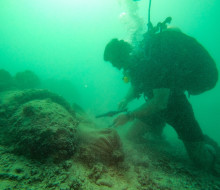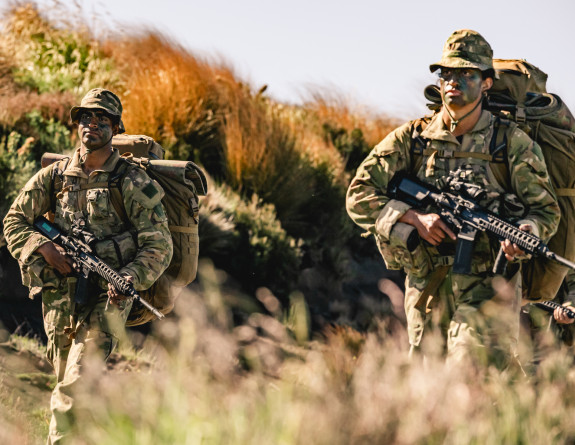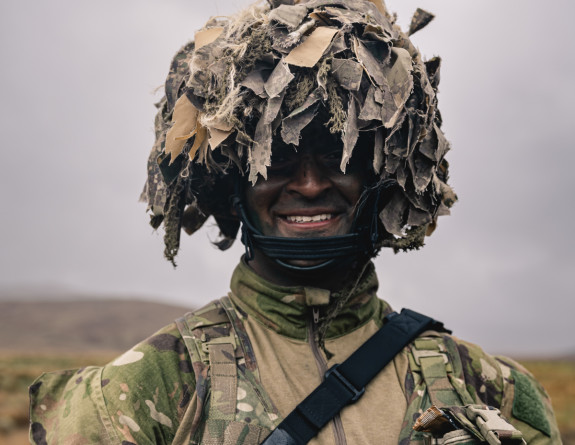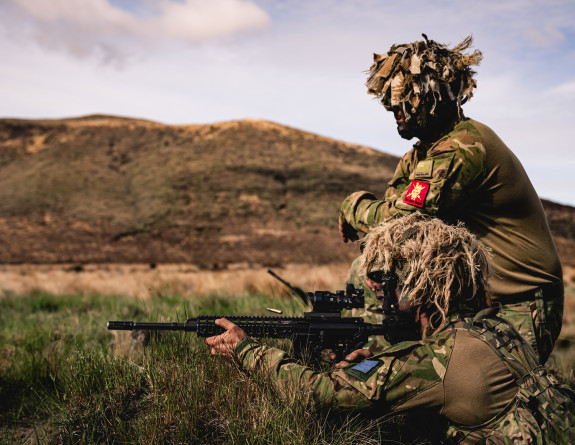
Second World War-era bombs in Vanuatu made safe by Navy divers
26 June 2024
Unfortunately you are viewing this website on an outdated browser which does not support the necessary features for us to provide an adequate experience. Please switch to a modern browser such as latest version of Google Chrome, Mozilla Firefox, Apple Safari or Microsoft Edge.
Ngā mihi nui
When Ishaan Kolbaker started digging his shell scrape in the rain it may not have been quite what he’d envisaged when he thought of community contribution for the Marlborough region.
The 25 year old high voltage technician is committed to helping his community. Joining as one of the newest New Zealand Army Reserve Force recruits, training in Waiouru Military Camp will give him the unique opportunity to assist locally and abroad when required.
“It’s part of my culture to contribute to the community. My civilian employment has already enabled me to help the West Coast communities during disaster relief.”
As a third year apprentice at Marlborough Lines he says he’s been fortunate that his employer is supportive of him joining the Reserve Force. He had exams due during his Army training so spoke to his apprenticeship assessor prior to attending Reserve Force recruit training and was able to delay them until completion.
Private Kolbaker, who is originally from India, became a New Zealand citizen in 2010 and since then has spent time in Perth, returning to New Zealand in 2019. On completion of recruit training he’ll be part of the 2/4 Battalion, Royal New Zealand Infantry Regiment based in Nelson.
“The training has been intensive at times, which has developed my organisational skills and resilience.
“When it’s hard I just keep going so that I can keep learning. One night I might be cold and miserable which then teaches me how to adjust what I do for a more comfortable sleep the next night, it’s an ongoing learning experience that builds resilience, self-reliance and camaraderie.”
When soldiers are living in areas of open country they ‘dig in’ for protection from fire by potential adversary weapons. They dig a shell scrape where they sleep, eat and are covered from fire.



Private Ishaan Kolbaker
Spending the first two nights in open country meant recruits had their first experience of digging in.
“When digging I was moving about two cubes of dirt, you can’t go to sleep until its finished, it was hard going at times.
“It was enjoyable though because we shared the misery which made our bond closer.”
Private Kolbaker says he enjoyed the navigation phase because it was a useful skill and one that can cross over to his work.
“A lot of the training is about figuring out the small things, once you get those right it makes the process easier. It might be where you store certain items in your pack to what to eat when or even what clothing to wear in the field.
“Wearing too many warm items can be just as dangerous as not wearing enough, each person is different and it’s working out what works for you along with the guidance given by our instructors.”
Private Kolbaker says he misses his wife but it has been good to be able to chat over the phone.
“We had our first wedding anniversary while I was here and she has been very accommodating. We’ve agreed to celebrate at one year and one month instead!”
Any Defence Recruiting enquiries can be directed to 0800 1 FORCE. Each Reserve Force company has its own training programme in line with its battalion’s training focus. Company level training typically occurs one weekend a month with platoon level training occurring once a week.